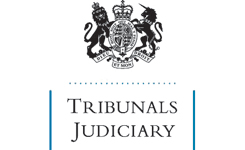|
Notes:
|
Reported as [2014] AACR 12.
Housing benefit – the definition of a voluntary organisation in relation to exempt accommodation status
The claimant was a tenant of Salisbury Independent Living (SIL), a not for profit organisation which provided private housing with support services to people with learning difficulties. The accommodation it provided was either owned by SMS, another company, or by other partnerships. One person, Mr C, was involved with all three elements: he was a consultant to SIL (which he had established), a director of SMS and also a member of the other partnerships (with his wife). The Council decided that the arrangements between SIL, SMS, and the partnerships meant that SIL was not a voluntary organisation, or a housing association, for the purposes of Schedule 3 to the Housing Benefit and Council Tax Benefit (Consequential Provisions) Regulations 2006. Accordingly, the claimant’s accommodation was non-exempt (so reducing his benefit entitlement). The First-tier Tribunal (F-tT) upheld the claimant’s appeal against that decision having concluded that no one had made a profit (including SIL, SMS, or Mr C). Before the Upper Tribunal (UT) the Council argued that, in determining whether SIL was a housing association or a voluntary organisation, account needed to be taken of the fact that it was possible for profits to be made.
Held, dismissing the appeal, that:
1. the statutory definitions of both “housing association” and “voluntary organisation” included a “Non-profit making Condition”. It was possible (if not inevitable) that a body providing accommodation and support may enter into arrangements with other individuals or bodies, including Property and Service Contractors, whose purpose was to make a profit. Therefore, Parliament could not have intended that, by itself, this possibility would prevent the Provider from satisfying the Non-profit making Condition (paragraphs 31 to 46);
2. Parliament’s primary intention had been to ensure that housing benefit continued to meet those rents which reflected the bona fide and higher costs of providing specialist supported accommodation. The fact that this involved defining the Providers of the accommodation did not dilute Parliament’s intention, nor introduce an intention to draw a distinction between those cases where the Provider and the Property and Services Contractors were not connected and those were they were connected (paragraphs 49 to 50);
3. the ability to make surpluses did not mean that a company was trading for profit. Whether a company did trade for profit engaged the issue of what it did with it: see Excise Commissioners v Bell Concord Educational Trust Ltd [1990] 1 QB 1040 (paragraphs 58 to 59);
4. the approach in Salford City Council v PF [2009] UKUT 150 (AAC) was approved and a sequential approach advocated: (1) to check whether the Provider complied with its own objects and powers and that the accounts accurately reflected its activities and affairs, (2) to consider the other activities or matters relevant to the definition of exempt accommodation or any anti-abuse provision, and (3) to look, where relevant outside the Provider’s constitution including where it covenanted its profits to a charity to which it was a wholly owned subsidiary (paragraphs 75 to 76);
5. if, as was accepted by the Council and accorded with the findings of the F-tT, the arrangements between SIL, SMS and the partnerships were bona fide and commercial and involved no overpayments or disguised profits, then the Council’s primary argument was wrong in law and it followed that any defect in the reasoning of the F-tT was not an error of law (paragraphs 87).
|
